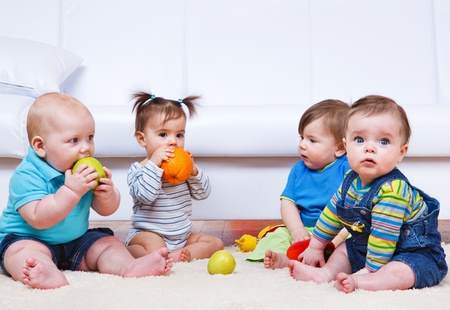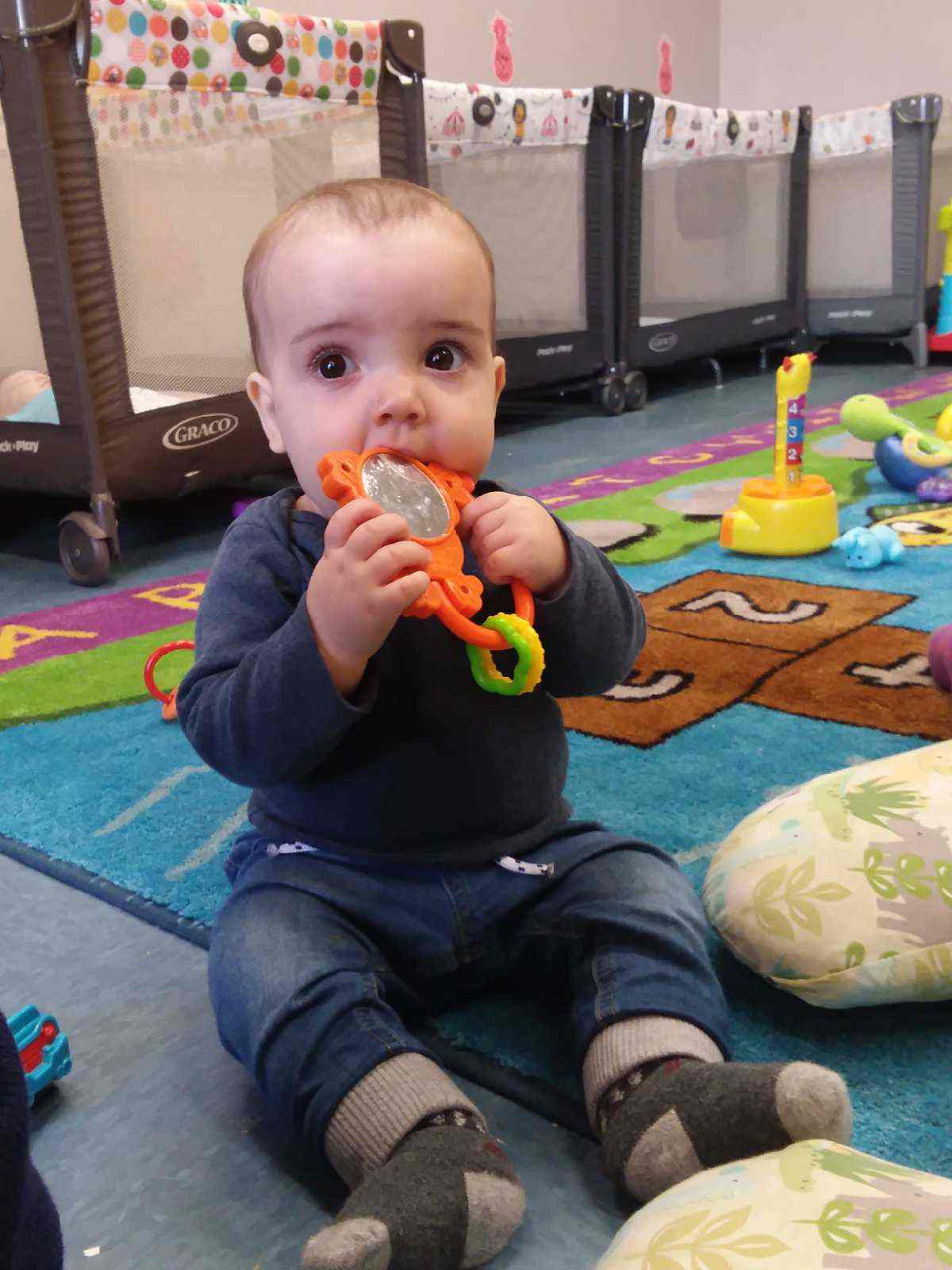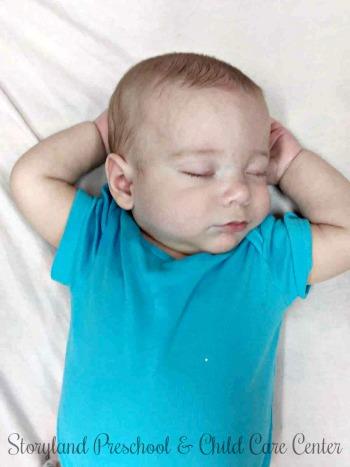Our Infant Program
 Our Storyland Infant Program
Our Storyland Infant ProgramWe believe infant care should be based on relationships with child-directed learning taking precedents over adult-directed learning.
We design rooms and schedules with the children in
mind and work hard to provide an environment that is both inviting and
safe. Most of all, our program centers around nurturing, caring relationships between infant and caregiver.
We Believe
 Our days are filled with discovery, learning, and fun
Our days are filled with discovery, learning, and funWhile we put an emphasis on the teacher child relationship, providing tender loving care, and keeping children safe, we also think that it is important to look at the entire child’s growth and development when planning fun and challenging activities.
Children learn so much in the first three years of their lives and we want to be there to help guide and direct this learning. Our infant toddler programs are not considered a stepping-stone to prepare children for preschool.
Rather, during these important years, we want to lay the foundation by forming secure attachments, working on social and emotional development and providing ample time each day to learn and practice motor skills, language development, self-help and self-regulation.
Ratios are kept as low as possible to provide opportunities for one-on-one, small group, and large group activities. Books and stories, arts and crafts, music and movement, and specific learning activities fill the toddler’s day. Learning takes place all day long, so we do not designate a specific period of time such as that seen in our preschool programs.
Nursing Moms
 Young infants still need plenty of rest
Young infants still need plenty of restWe encourage you to nurse your baby at Storyland if your time permits. We have a comfortable, quiet, and private basement for you to use or you may nurse in the classroom if you prefer.
Meals and Snacks
Storyland participates in the USDA's CACFP (Child and Adult Care Food Program) which means that your infant is receiving nutritious meals and snacks. We provide Parent's Choice Brand Formula, Baby Cereal, Baby Food and additional table foods as the child matures and becomes ready for such items. These may include but are not limited to crackers, fruits, vegetables, and others.
Our Goals for Our Infant Programs
SOCIAL AND EMOTIONAL DEVELOPMENT
GOAL: TO LEARN ABOUT SELF AND OTHERS
1. Learns to know and Trust caring adults
2. Regulates own behavior
3. Manages own feelings
4. Responds to others’ feelings with growing empathy
5. Plays with other children
6. Learns to be a member of a group
7. Uses personal care skills
PHYSICAL
GOAL: TO LEARN ABOUT MOVING
8. Demonstrates basic gross motor skills
9. Demonstrates basic fine motor skills
COGNITIVE
GOAL: TO LEARN MORE ABOUT THE WORLD
10. Sustains attention
11. Understands how objects can be used
12. Shows a beginning understanding of cause and effect
13. Shows a beginning understanding that things can be grouped
14. Uses problem-solving strategies
15. Engages in pretend play
LANGUAGE
GOAL: TO LEARN ABOUT COMMUNICATING
16. Develops receptive language
17. Develops expressive language
18. Participates in conversations
19. Enjoys books and being read to
20. Shows an awareness of pictures and print
21. Experiments with drawing and writing